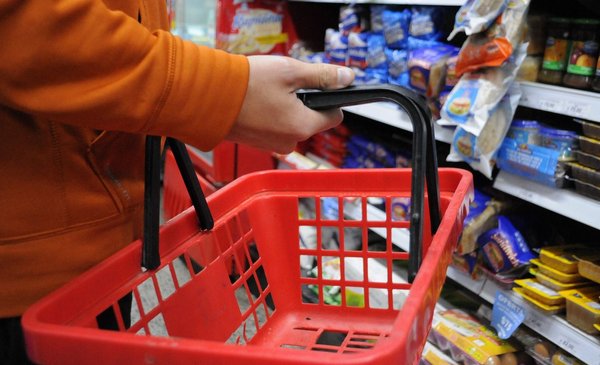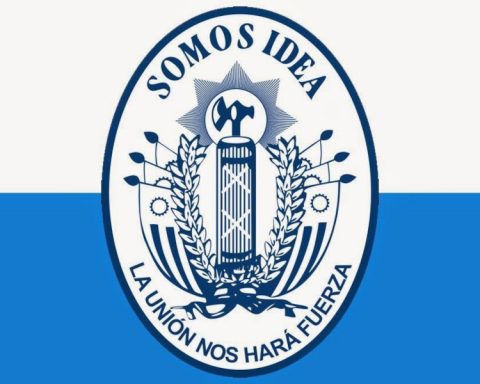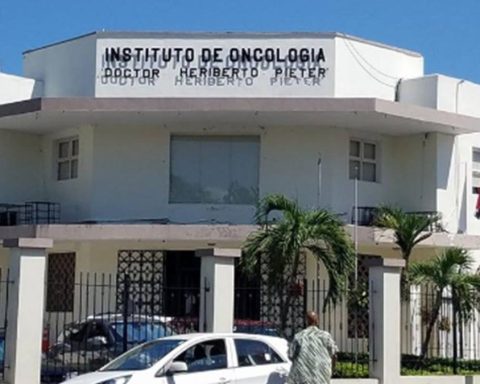The Executive Power is analyzing what mechanisms can be implemented to moderate the price increases that are being processed in the domestic market product of the war between Russia and Ukraine.
The impact of the conflict in Uruguay was one of the issues addressed on Monday by the Executive Committee of the Colorado Party (CEN). During the meeting, the Minister of Livestock, Agriculture and Fisheries, Fernando Mattos, reported on the tension that exists, on the one hand with high prices that favor various national export items, and on the other, increases in basic necessities of the food basket.
Mattos explained that since Ukraine and Russia account for 30% of the international wheat market, there has been “an enormous impact”, with record prices and “very oscillating”. Something similar occurs with the prices of soybeans, sunflowers and vegetable oils, the Colorado Party reported in a statement.
One of the first settings It has already been made effective in the price of flour, which increased by around 10% due to the decision of the milling industry. This led to bakers announcing an average increase in the price of bread of between 5% and 8% last week.. There is also pressure on oil prices. A source from the Uruguayan oil industry explained to The Observer what reality indicates that the prices of oils “are flying” worldwide, as is happening with grains. “The costs we have today are significantly higher than those we had before the Russian invasion of Ukraine began,” she warned.
Some ideas were also discussed at the meeting, such as the possibility that a price agreement can be reissued, which includes a series of products from the basic basket, similar to the one carried out at the initiative of the current government in 2020 for three months, shortly after the pandemic began.
Another idea that was handled in the weekly meeting of the Colorados is to bring the minimum VAT rate to 0%, today at 10%. That tax applies today for basic necessities such as common white bread and campaign biscuits; fish, meat and offal, fresh, frozen or chilled; Edible oils; rice; cereal flour and by-products of its milling; pasta and noodles; salt for domestic use; sugar; Herb; coffee; tea; common soap and edible fats.
Last week, at the suggestion of the MGAP, President Luis Lacalle Pou ordered the creation of a table to monitor the international situation, which is made up of the Ministries of Economy, Industry, Livestock and Foreign Affairs, and which will meet formally in the next days to refine specific proposals. In response to a query The Observerfrom the Ministry of Economy they explained that nothing has been defined yet and that they continue to work on the subject.
cheaper meat
In relation to the supply of beefone of the alternatives that has been handled in recent days is the possibility of increase the volume of imports from Paraguayand, that its flow of exports to Russia has been affected due to the war. At least in the short term, entrepreneurs in the meat import and distribution sector do not see as a viable solution an income much higher than the current one from Paraguayan beef cuts at prices that allow the consumer to access that protein at a lower cost than produced in the country, whose value increased 25% since the end of January.
In the first two weeks of March, Paraguay was the main origin of meat imports with 47% and an average price of US$ 4.2. Brazil follows with a 35% share and an average price of US$6.75 per kilo, according to Customs data.
Lower business costs
In a meeting held on Friday, a delegation from the Industrial Food Chamber (Ciali) raised with representatives of the Ministry of Economy and Finance its concern about the sharp rise in costs, and the need to seek measures to try to mitigate its impact on the domestic market. Tied to this, the Industrial Chamber of Packaged Foods (Ciali), also put on the table another concern, which is the negative impact that the trust recently implemented by the Argentine government to intervene in the price of wheat.
From the MEF it was transmitted that there is “concern” about the increase in prices that is having repercussions in an acceleration of inflation. In the year ending in February, the Consumer Price Index (CPI) stood at 8.85% and moved away from the current official target range (3%-7%). In turn, the authorities requested information from industrialists about the impact that the Argentine measure may have on the sector.
The MEF did not give details on what concrete measures are being taken to soften the price increases that are produced by the war in the basic consumer basket. Yes it was outlined in the line of finding ways to lower fixed costs of companies, rather than exploring other ways such as an eventual price agreement or tariff measures such as that of Argentina, Flores told The Observer. In this sense, the authorities specifically transmitted that they are looking for “long-term solutions”. The Executive Branch will present a first package of measures in the coming days
For its part, this Monday the Confederation of Business Chambers (CCE) issued a statement in which it stated “concern for the situation that international markets are going through and that have repercussions at the local level in the business and economic sectors and in the whole of society”. “The recent rises in primary products have a direct effect on processed products and the CCE closely follows possible actions that the government determines to contain an effect on inflation, taking into account that some of the member chambers are involved in this stage,” they noted.
Fertilizers from Brazil
Minister Mattos told Bloomberg Online that steps have been taken with Brazil so that Uruguayan producers can access to the purchase of fertilizers with the intermediation of the northern country. The operation would imply that they have to go to Brazil to look for the products, although later the private companies will also have to agree on their price. In this way, the aim is to ensure the supply of this key input for agriculture.

















